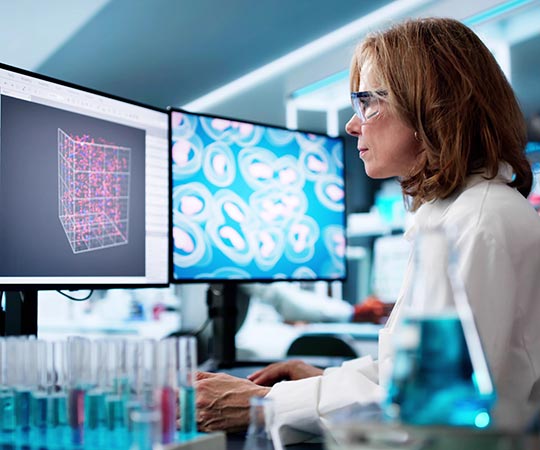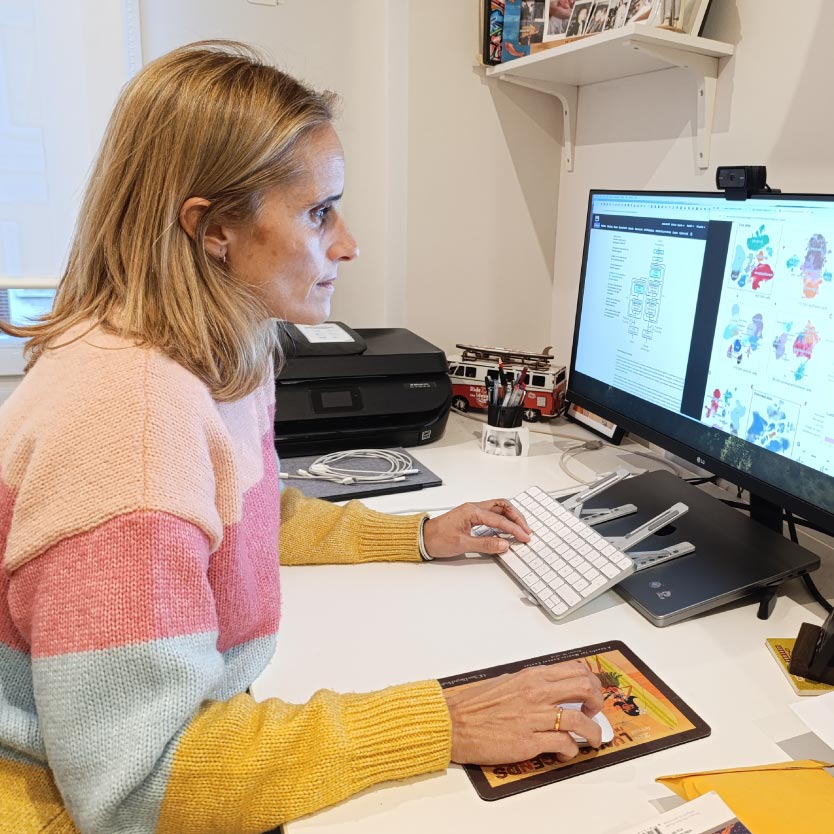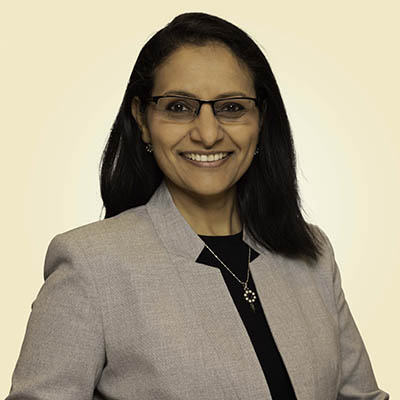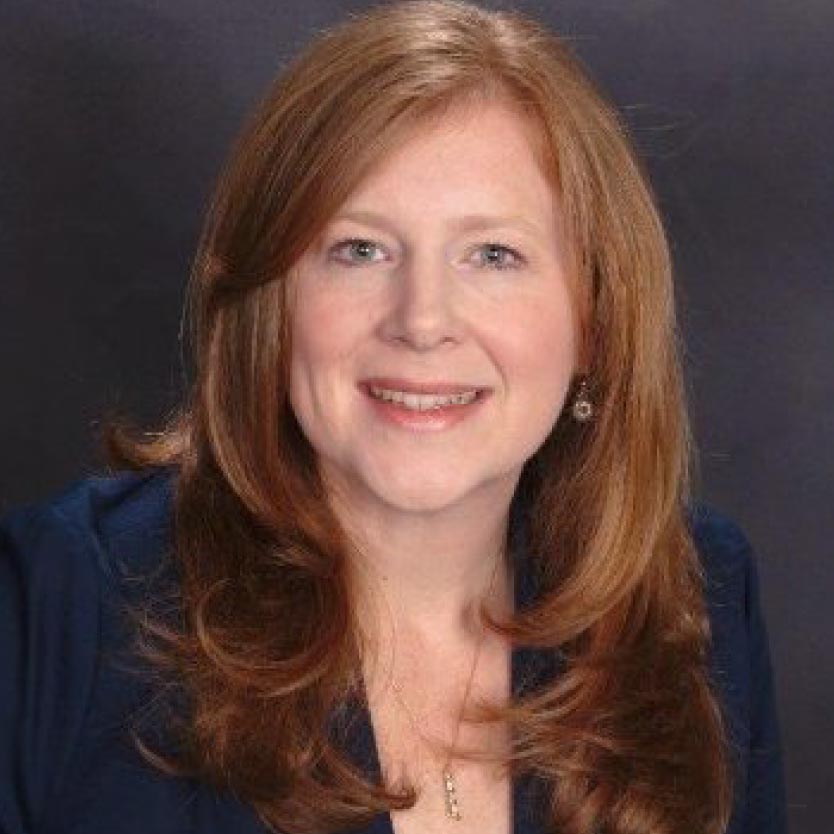
Sally John, SVP, Information and Predictive Sciences, Cambridge, MA
Sally John joined BMS as senior vice president in 2024 to lead the Information and Predictive Sciences team. Part of the larger Research group, Sally’s team handles data, and lots of it.
“We bring in data and we manage it, we archive it, we analyze and interpret it,” she explained. “Then we sit down with biologists or clinical teams to interpret what those results actually mean. AI is a hugely important tool that enables us as scientists to much more rapidly make sense of the huge amount of data that's out there.”
One example of how Sally and her team use AI is through a large language model application, she said.
“There are millions of publications and data sets out there — too much for a single scientist to conduct a literature review and dive through all the databases to learn more,” Sally said. “So, one example of how we use AI is large language models, used to automate what we call target reports, which predict the most promising targets that could make new medicines, and that gives a huge head start to biologists.”
AI may also enable scientists to make computational predictions, Sally said. “Rather than conduct 1,000 experiments in the lab, you have data sets that learn from existing experimental data and predict what the outcome of future experiments would be.”
Examples of this include being able to predict complex molecular signatures from routinely stained pathology samples or predicting the effects on cell survival or other traits of knocking down a gene in an experimental cellular system. “We can now focus our resources on perhaps more important biological questions earlier, and that will undoubtedly get us to new medicines more quickly,” she said.




